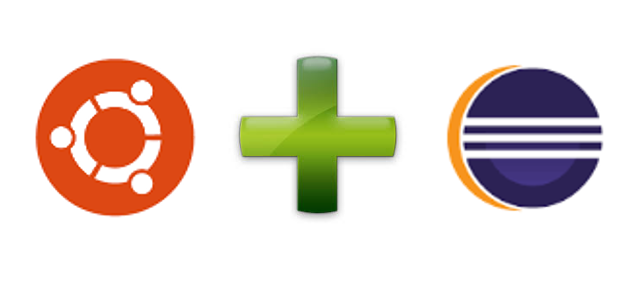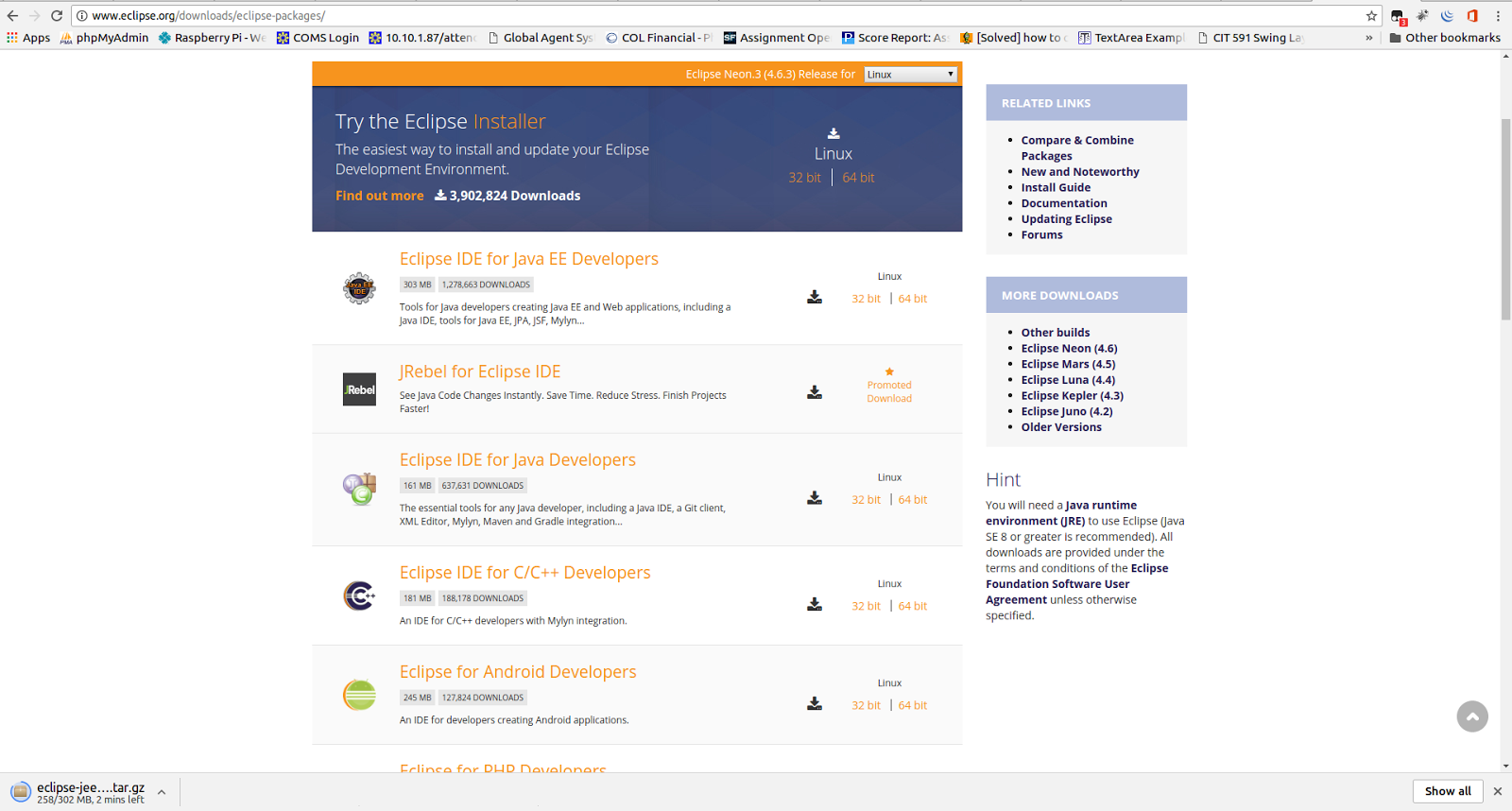
- #Install eclipse neon linux how to
- #Install eclipse neon linux install
- #Install eclipse neon linux update
- #Install eclipse neon linux license
- #Install eclipse neon linux download
Once eclipse launches, it will want you to select a workspace.
#Install eclipse neon linux install
When Install is complete you may start up the IDE by clicking the Launch button If you have a poor internet connection, installation may take some time.Ĭheck box to indicate you trust the certificates Note: Installation time for Eclipse is dependent on your internet speed.
#Install eclipse neon linux license
Note: Default “Installation Folder” is /home/your user name/eclipse/cpp-neon2 - We suggest keeping this default.Ĭonfirm License and installation will begin. Select the “Eclipse IDE for C/C++ Developers” option You will be presented with a easy to understand graphical interface (GUI) The last command from the previous step will launch Eclipse Installer. eclipse-inst Step 3: Install and Launch Eclipse $ cd /~/Downloads $ tar zxvf eclipse-inst-linu圆4.tar.gz $ cd eclipse-installer $. Use the tar command to untar the downloaded tar file.Ĭhange directory to the newly untarred eclipse-installer folderĮxecute the install script and proceed to the next step Open your terminal and change directory to the folder with your download.
#Install eclipse neon linux download
Step 2: Extract your eclipse download and run the installer Once download is complete proceed to next step. You can change your mirror, or simply download from the suggested mirror by clicking this last Download button. Once again click the yellow Download button.įinally, you will see a box with download mirror and button. Using your preferred web browser, go to “ and click the Download button located at the top-right. Step 1: Download Installer from To do this we will need to dig our way through download buttons.

The following steps will walk you through this process.
#Install eclipse neon linux update
$ sudo apt-get update $ sudo apt-get upgrade $ sudo apt-get dist-upgrade Install Eclipse IDEīefore moving on to the next sections, you will need to install the latest version of the Eclipse integrated development environment (IDE). APT must know about these new versions by way of ‘apt-get update’Īpt-get dist-upgrade: In addition to performing the function of upgrade, this option also intelligently handles changing dependencies with new versions of packages This is possible even when using the stock images, recent downloads, or newly flashed versions of any operating system.Ī few useful commands will help us make sure everything on the board is current:Īpt-get update: Downloads package lists from online repositories and “updates” them to get information on the newest versions of packages and their dependencies.Īpt-get upgrade: Fetches and installs newest package versions which currently exist on the system. The image on your host Linux computer might be out of date. You are cross compiling for 96Boards - either 32bit or 64bit ARM. Previously installed command line cross compilation tools as described in a prior blog entry of mine.Ĭross compiling host computer is X86 based running Linux, either Ubuntu 16.04, Debian Jessie, or Debian testing with Jessie cross compiling tools installed.
#Install eclipse neon linux how to
Knowledge on how to use Eclipse as an Integrated Development Environment (IDE). If you are unsure as to how to use Eclipse, there are tutorials which can teach you how to use both basic and extended functions. These instructions do not presume to teach you everything about Eclipse, but rather how to get cross compiling working with Eclipse.

It is assumed you have already installed and tested the command line cross compile toolchains ( Blog: Cross compile using command line). Once Eclipse is installed, we will set up a project for cross compiling.

These instructions do not demonstrate how to install Eclipse system wide. You will also learn how to install a copy of the Eclipse IDE for C/C++ Developers in your home directory. These instructions show how to install the Linux version of Eclipse, either on the latest Debian (Jessie) or Ubuntu (16.04). Future blogs will cover using libraries (libsoc & mraa), auto copying executables from a cross compiling machine to a 96Boards target, and remote debugging. In this blog I’ll show you how to install Eclipse for C & C++ development for basic cross compilation. In my last blog I showed how to install and use ARM command line cross compilation tools.


 0 kommentar(er)
0 kommentar(er)
